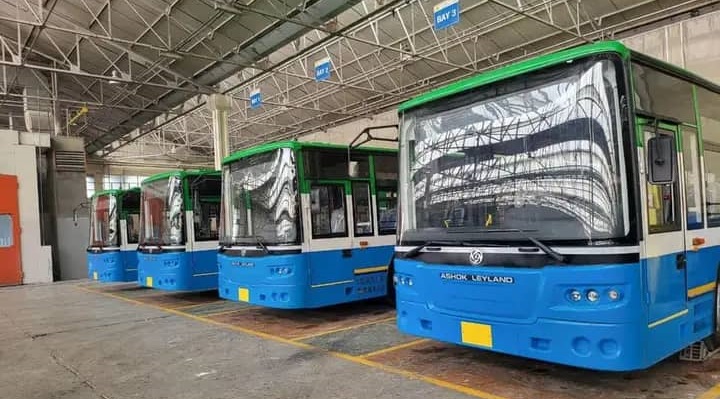On Friday 2 February 2024, the newly arrived 50 government buses labelled Waka Fine commenced operations in Freetown. The bus service is arguably the largest in the passenger transportation market in Freetown and across the country.
As much as the increase in supply of bus service is timely in an ever-increasing crowded metropolis, residents of Freetown have expressed concerns not only over the cost of ticket, which is 100% above the current cost of bus fare, but also over the restrictive route measures imposed by the government to limit private commercial transportation usage of some major roads in Freetown.
For many, this amounts to not only stifling road transport market competition but a major infringement on the freedom to access public roads at all times, for the movement of people and goods.
All this is happening in a small country where, according to Logistics Cluster (2022) in a report sponsored by WFP titled Road Transport Assessment, road transport is the most dominant mode of transport and represents about 85% of the entire transport system in Sierra Leone.
95% of the inland transportation of passengers and goods is carried out on road networks.
“In civilized democracies, no government will restrict vehicular movement just arbitrarily when there’s no state of emergency,” an anonymous critic opined.
This latest move by the Bio-led government has made many citizens believe that the country is being governed by an autocratic regime that whimsically announced a public order on vehicular restrictions on major roads simply to increase road traffic advantage for government buses that are being operated commercially, thus stifling the country’s free market economy.
This political decision to restrict private commercial transportation on some major roads in Freetown is discouraging competitiveness in the transportation sector and is a reminder of Sierra Leone drifting into a communist style economic system.
No Access to Private Commercial Vehicles during certain hours – A Quasi-Monopolist Measure
The letter written and published in January 2024 by the Sierra Leone Ministry of Transport and Aviation, instructing a no-access for other vehicles apart from SLPTA licensed operators during certain hours, breeds fear in many quarters that a quasi-monopoly is being introduced in a supposedly free market economy.
It is important to note that Sierra Leone remains at the bottom of the human development index across every sector, including the provision of basic transportation services for people and goods.
The government’s restrictive transportation measure will lead to the degeneration of an already weak private sector economy that needs urgent support to boost the national economy, which many now believe is on life support.
Yes, no one needs a quasi-monopolist measure in one of the major sectors that support the national economy in a crisis period when Sierra Leone is facing hyper-inflation and the worst economic recession in post conflict era.
Recommendations for Prompt Action
- The WakaFine bus ticket price is 100% above the normal and current market price for bus service in the designated routes. This may provoke an unwanted artificial surge in the current market price across different levels of road transport for passengers including bus, taxi, kekeh, and okada services. Therefore, government must quickly review the ticket price favourably below or at par with the current market price.
-
Restrictions to routes plied by other vehicles need to be quickly lifted to allow for competitiveness in the transport sector. When that is done, the right to free movement of people and their goods will be restored once again.
Sierra Leone like many other nations in Africa is not a perfect democracy. However, a deliberate effort to transition to good governance and economic freedom through healthy competition in all sectors, with improved transportation and economic policies is the hallmark of economic growth.
We must put our selfish egos aside to make amends and lift this nation from the shackles of poverty and corruption.
About the author
Ibrahim Baimba Koroma is the Executive Coordinator of the Advocacy Network for Community Development in Sierra Leone.


 2 Comments
2 Comments 









Thank you my Brother, this is not what we voted for my Brother, we voted for cheaper transportation, more roads,a liberal economy,an investment friendly environment , but what we are facing is the opposite, so please Salone government listen to the cry of the PEOPLE,
Sierra leone is heading towards the wrong direction, we people of Sierra Leone are tired of the attitude of paopa government towards the citizens.